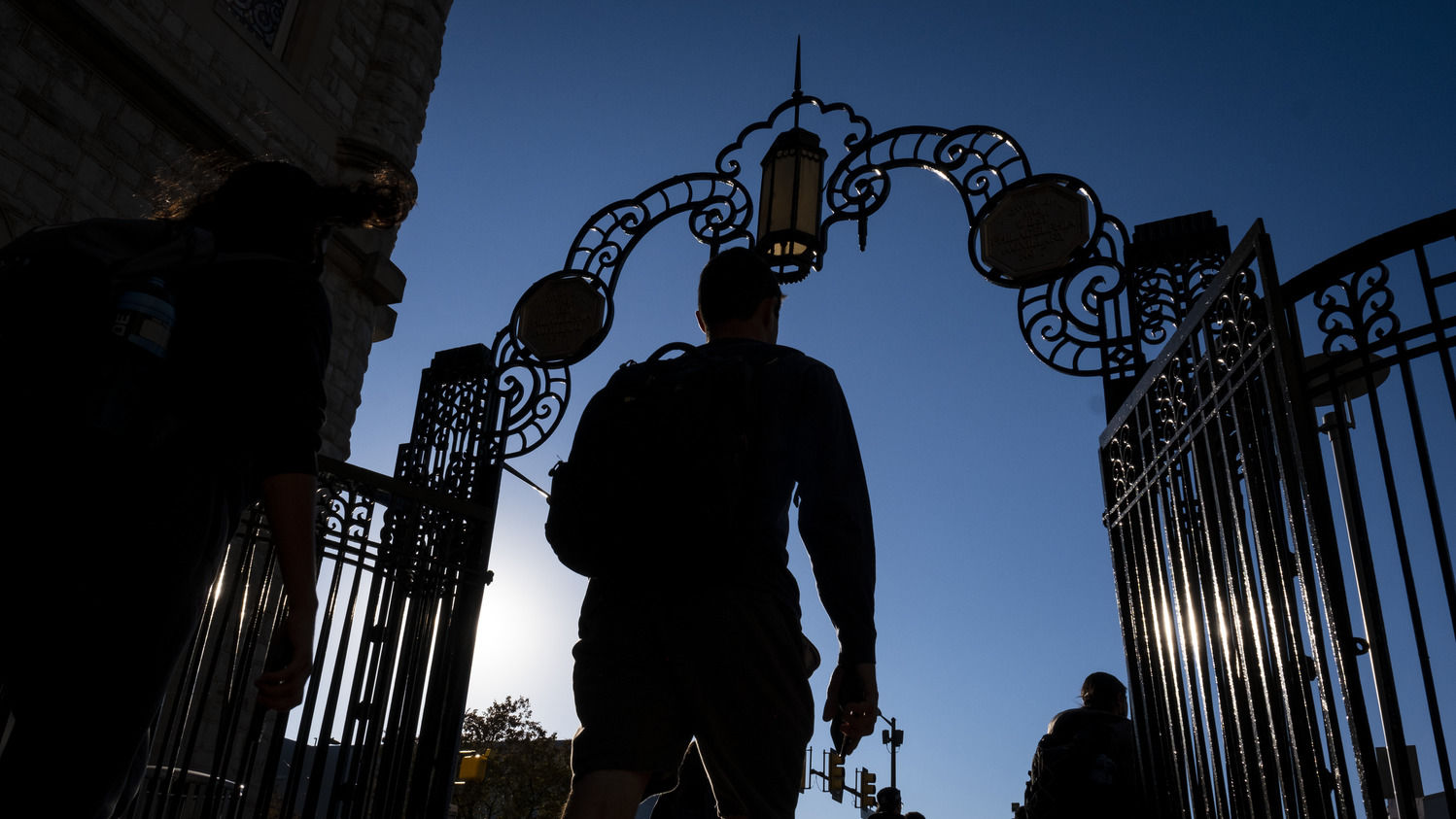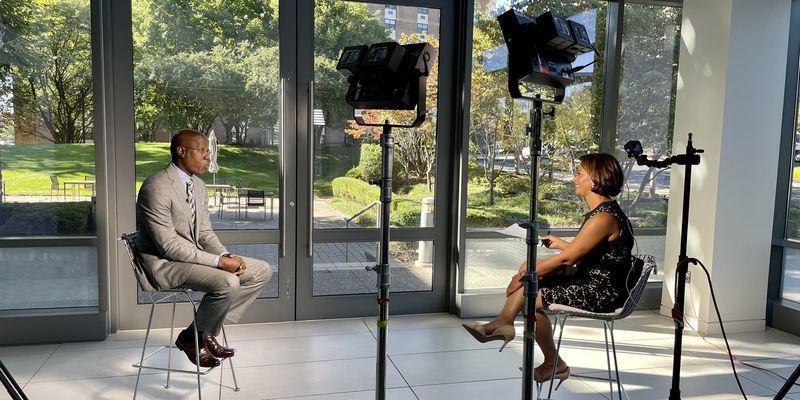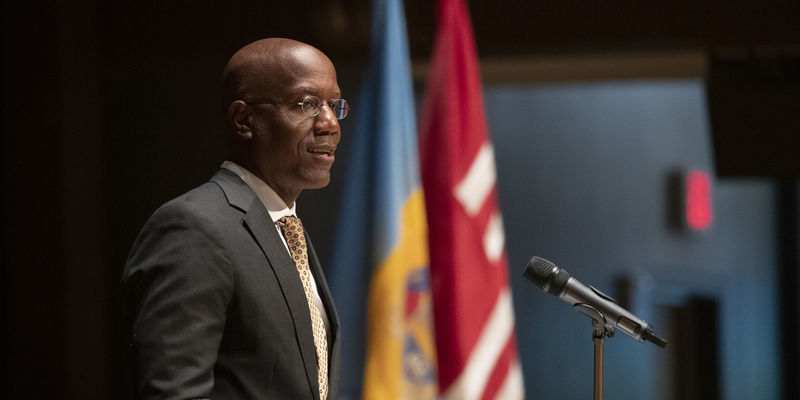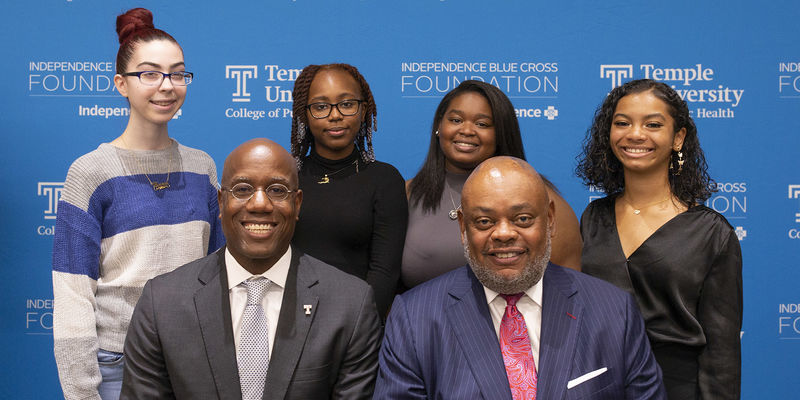Colleges can lead hot-button issues by pushing critical thinking
President Wingard believes universities have to be ready to do the hard, but necessary, work of challenging and stress-testing all view points.

Originally published in the Chicago Tribune on Oct. 18, 2021.
The fall semester is off to another turbulent start on college campuses across the country.
Last month, demonstrators gathered in Harvard Square to protest the new law in Texas that bans nearly all abortions. Meanwhile, an anti-abortion rights group spoke out against abortion on the campus of a university in Michigan. Meanwhile, differing mask and vaccine policies have sparked lawsuits and heightened political differences on campuses such as Indiana University, Texas A&M University and the University System of Maryland.
Such divergent debates have long been part of the lifeblood of college campuses across the country. But, recently, the political polarization that has divided the country into red and blue states has also infiltrated higher education and is systematically dismantling its greatest core value: critical, evidenced-based thought and healthy, open discourse. Many of the same culture wars roiling cities and towns, and even families, have heightened tensions in lecture halls and made it nearly impossible to facilitate a civil deliberation.
In short, the politics of cancel culture is ruining college.
From gun rights to abortion to Black Lives Matter to critical race theory to transgender rights to the Israel-Palestine conflict to white supremacy, it seems as if every topic—including the weather (see climate change)—is fraught. As if that is not enough, the debate surrounding mask wearing and vaccines is plaguing many campuses as they try to reopen—and stay open—after a year of lockdowns.
The flashpoints are colliding at a time when college enrollments are dropping, especially among white men. Many states have slashed funding for higher education, forcing schools to increase tuition just as many are wondering if the cost of a four-year degree is worth it.
Rather than hide from these difficult issues, universities need to embrace their rightful place as a force for rigorous debate and balanced discourse. Universities must welcome all views and teach students how to think—not what to think. To be sure, students should understand that there is no place in a civil society for crackpot conspiracy theories. Arguments require grounding in facts.
Universities must be ready to dig into the difficult issues surrounding cancel culture, and to lay bare for the world that confabulation. To do the hard, but necessary, work of challenging and stress-testing all viewpoints. That is the only path to meaningful resolution and understanding.
Consider a seemingly intractable subject: the Israel-Palestine conflict. There is so much history, passion and personal investment in this heated issue that civil conversations are frequently impossible, never mind being over before they start.
These non-conversations often spill into the social media meat grinder, leading to public outcry and demands to fire faculty or expel an offending student.
What if the response to a Jewish student group and a pro-Palestinian student group getting into a shouting match in a public space on campus was not just to issue a banal statement condemning incivility? What if the response was not just to try and thread a nonexistent needle of neutrality?
What if, instead, higher education did what it does best—be the venue and the vehicle for learning, discussing, understanding differing views and opening minds?
What if the institutional response to a hot-button issue such as the Middle East was to lean in? To bring together experts and authorities for open dialogue on the topic. To make sure the views of those experts are freely available to the students and scholars in the university community through a public event and recorded for rewatching. To put the resources and thought into the creation and presentation of such a response in order to make it clear that it is not intended to resolve the question, but instead to empower everyone with an interest to question the question. To challenge the thinking not only of those they disagree with, but, as importantly, also their own.
What if, in fulfilling its promise as a place for education and personal growth, a university tackled a thorny, intractable problem by applying a thoughtful, strategic process as a goal in its own right?
What if, in doing so, the university made it clear that the endgame was not—was never—deciding who is right and who is wrong?
Higher education is the last bastion of hope for this type of civil debate. If universities are to survive and reestablish their valued position, they must fully leverage the power of convening, and aggressively encourage active, bipartisan discourse in pursuit of learning that will ultimately preserve the institution, and advance a peaceful and productive society.
—President Jason Wingard


